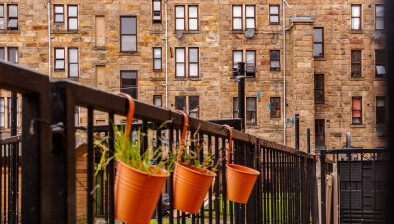Chancellor unveils more money for Scottish infrastructure projects

Scotland will receive an increase of around 14 per cent of infrastructure funding, Chancellor George Osborne said yesterday.
Delivering his Autumn Statement and Spending Review to the House of Commons, the Chancellor said the “significant increases” along with the new powers heading to Holyrood meant that Scottish ministers would have to make “hard choices” too.
Capital spending north of the border will rise by £1.9 billion in the years to 2021, with the Scottish block grant to be more than £30 billion in 2019-20, he said.
The refurbishment of Glasgow’s Burrell Collection was given a £5 million pound boost towards its £66m revamp which is expected to last three years.
The world famous, A-listed building in the city’s south side needs a new roof, new glazing and a major internal refit.
The £5m adds to the £15m pledged earlier this year by the Heritage Lottery Fund. The remainder will come from a public fundraising campaign.
Elsewhere in the Spending Review, Mr Osborne doubled the English housing budget to support 400,000 extra new homes by end of decade. Scottish builders immediately called for an equal commitment on housing north of the border.
Philip Hogg, chief executive of trade body Homes for Scotland (HFS), said: “Whilst we are still absorbing the detail of the Chancellor’s announcement, its sentiment is absolutely clear: to back those who aspire to buy their own home. And the fact of the matter is that, as the Scottish Government’s own research shows, this aspiration applies equally to the majority of Scots.
“Supporting this ambition by stimulating private sector construction will bring wide-ranging benefits, including boosting affordable housing delivery through the direct contribution our industry makes in this area via planning policy.
“The Chancellor has also maintained his commitment to the successful Help to Buy scheme to 2021 and introduced a new tailored version specifically for London. This is in marked contrast to the position here where the announced successor to the Scottish Government’s scheme faces budget reductions of up to 50 per cent and will likely be less accessible to buyers.
“We further note the Chancellor’s intent to remove constraints to allow all sectors to play a role in affordable housing delivery as well as his support for SME home builders on planning and finance, something HFS has been in discussions with the Scottish Government on for many months.
“With Scotland facing the same challenges as elsewhere in the UK, we therefore call on the Scottish Government to broaden the balance of its approach to housing delivery and place equal emphasis on having enough homes of all tenures in the right places to meet the diverse housing needs and aspirations of all those living in Scotland.”
RICS Scotland urged the Scottish Government to emulate the Chancellor’s extension of Help to Buy.
Sarah Speirs, director, said: “Help to Buy has played a significant role in supporting new housing supply benefitting both house builders and first time buyers, and this has helped to generate property-led growth in Scotland’s economy. Ideally, the house building market in Scotland should operate without this “carrot”, but as the Scottish economy recovers it is important that this funding stream continues, with sufficient checks and balance in place to ensure that volume builders do not become overly reliant on this shared equity initiative.
“Furthermore, RICS believes that all property should be used effectivity and efficiently, and we are keen to see action from the Scottish Government to improve the quality of Scotland’s existing stock through investment in maintenance and redevelopment schemes. This would ensure good quality homes which are fit for purpose for future generations, and would provide much-needed support for the supply side of housing which, in turn, will contribute to the revival of the SME sector and local economies.
“With infrastructure spending set to increase, RICS would also like to see this reflected in Scotland – with capital investment steered towards both large and small scale projects. Infrastructure is key to providing utilities and connectivity, unlocking economic growth, and assisting in housing developments becoming communities. Infrastructure provides jobs, integration and, importantly, makes Scotland internationally competitive and a more attractive investment arena.”

















